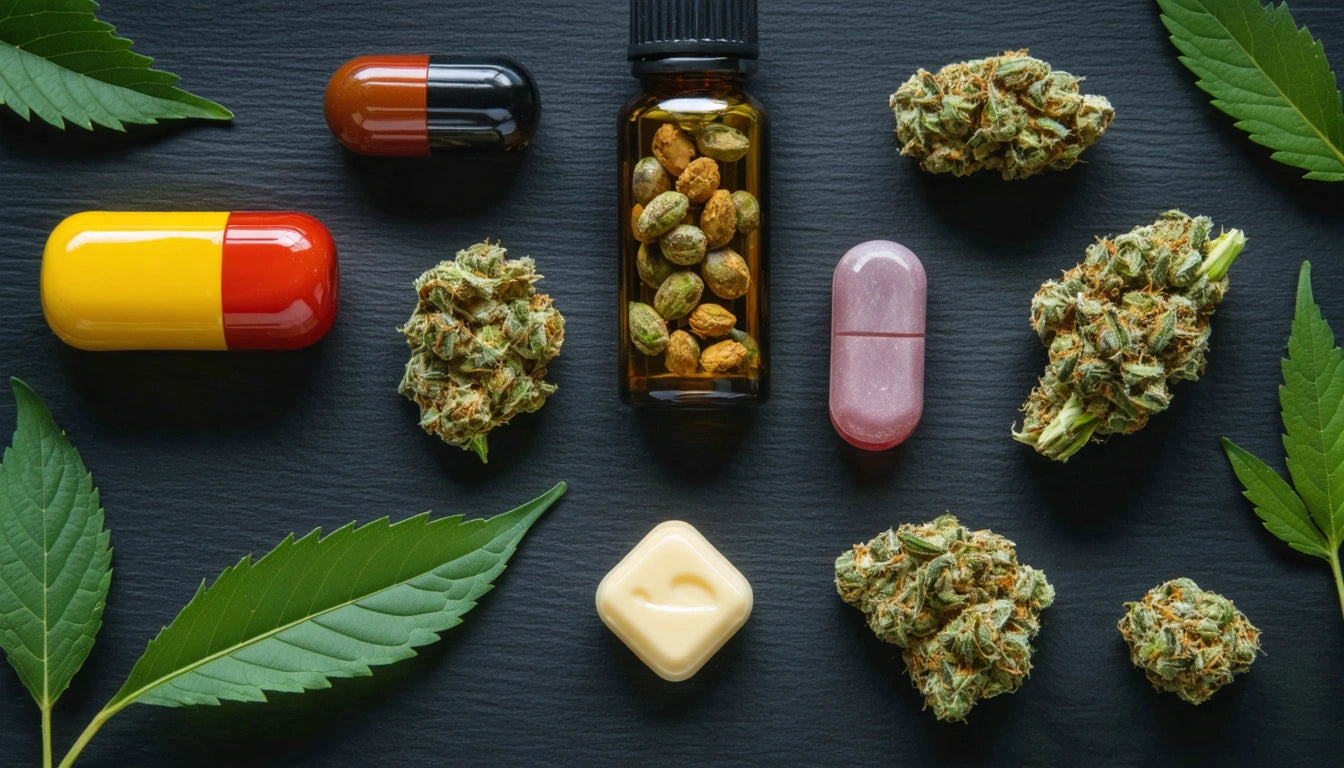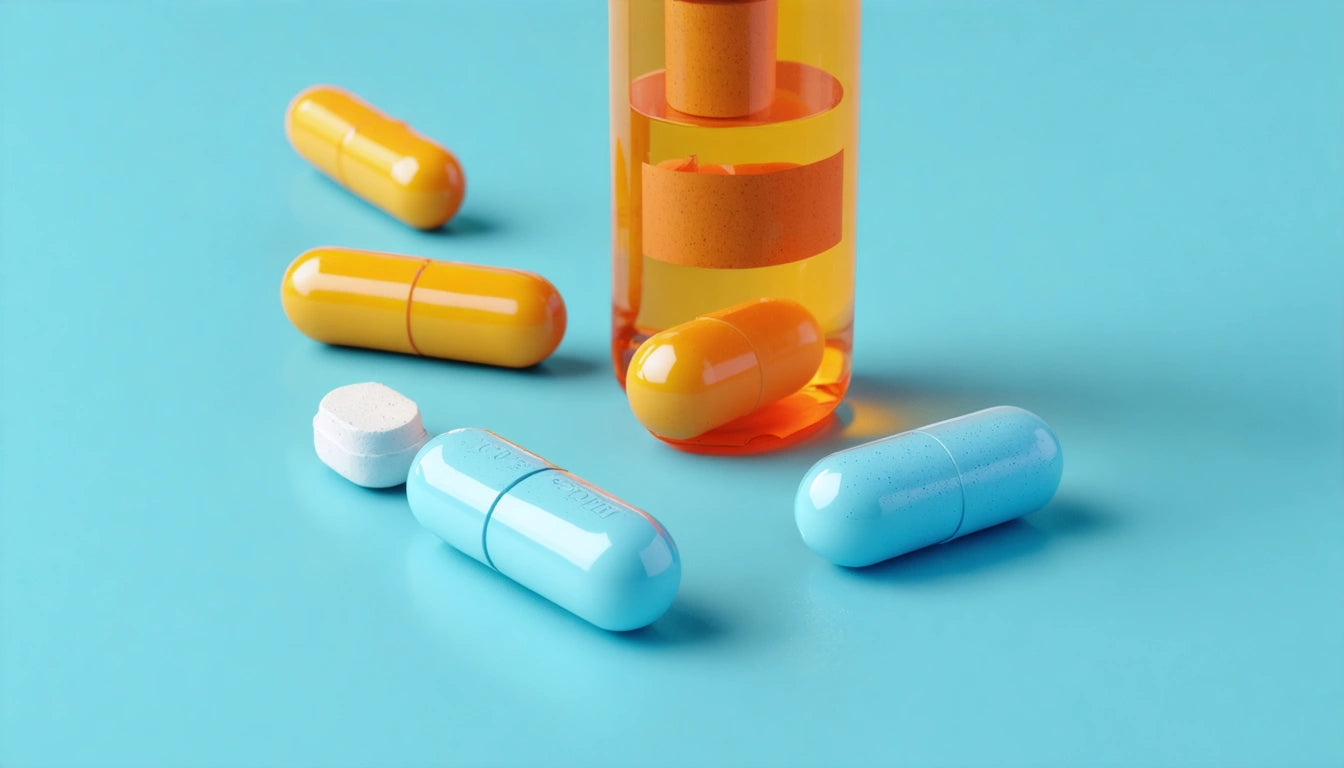Table of Contents
Can You Overdose on THC? Understanding the Risks and Symptoms
The question "can you overdose on THC" has become increasingly common as cannabis products become more widely available and potent. While a fatal THC overdose is extremely rare and has never been conclusively documented, overconsumption can lead to severe discomfort and distress. Understanding the risks, symptoms, and safety measures can help consumers make informed decisions about cannabis use.
Understanding THC Overdose: Facts vs. Misconceptions
When discussing whether you can overdose on THC, it's important to distinguish between a lethal overdose and overconsumption with unpleasant effects. According to research on THC overdose risks, the amount of cannabis required to reach toxic levels would be practically impossible to consume.
The term "overdose" typically refers to consuming a substance in quantities that produce life-threatening symptoms. With THC, extreme overconsumption can cause intense anxiety, paranoia, and physical discomfort, but these symptoms are not typically life-threatening in healthy individuals.
Symptoms of THC Overconsumption
When someone consumes too much THC, they may experience several uncomfortable symptoms:
- Extreme anxiety or paranoia
- Rapid heart rate
- Increased blood pressure
- Confusion or disorientation
- Nausea and vomiting
- Hallucinations or delusions
- Panic attacks
- Severe dizziness
For most healthy adults, these symptoms will subside as the THC is metabolized, typically within 6-12 hours for inhaled cannabis and up to 24 hours or more for edibles. However, understanding how long THC overdose symptoms last can vary based on individual factors like metabolism, tolerance, and the consumption method.
Why Edibles Present a Higher Risk
The question "can you overdose on THC gummies" or "can you overdose on THC edibles" is particularly relevant as edible products have been associated with more intense adverse reactions. Several factors contribute to this increased risk:
Delayed Onset
Unlike smoking or vaping, which produce effects within minutes, edibles can take 30 minutes to 2 hours to take effect. This delay often leads users to consume additional portions, thinking the initial dose wasn't effective.
Increased Potency
When THC is metabolized through digestion, it converts to 11-hydroxy-THC, which crosses the blood-brain barrier more efficiently and produces stronger psychoactive effects than inhaled THC.
Longer Duration
The effects of edibles typically last much longer (6-12 hours) compared to inhaled cannabis (2-4 hours), prolonging any negative experiences.
These factors make it crucial to understand how much THC is too much when consuming edibles.
Safe Consumption Guidelines
To minimize the risk of THC overconsumption, consider these guidelines:
Start Low, Go Slow
For infrequent or new users, begin with a minimal dose (2.5-5mg THC for edibles) and wait at least 2 hours before considering additional consumption.
Know Your Products
Always check the THC content and serving size information on product packaging. Understanding how many milligrams of THC you should take based on your experience level is crucial.
Consider Set and Setting
Consume cannabis in a comfortable, familiar environment with trusted people, especially when trying new products or higher doses.
Be Aware of Individual Factors
Body weight, metabolism, tolerance, and concurrent use of other substances can all affect how THC impacts you.
Treatment and Recovery from THC Overconsumption
If you or someone you know experiences severe symptoms after consuming THC, consider these steps:
- Remain calm and find a quiet, comfortable space
- Stay hydrated with water
- Use reassuring communication if helping someone else
- Remember that symptoms will eventually subside
- Seek medical attention if symptoms are severe or include difficulty breathing, chest pain, or extreme disorientation
Most THC overconsumption cases resolve without medical intervention, but healthcare providers can offer supportive care for severe symptoms.
Prevention Strategies for Safe THC Use
Preventing THC overconsumption begins with responsible product packaging and storage. Proper safety packaging requirements help reduce accidental ingestion, especially by children. Child-resistant packaging is designed to be significantly difficult for children under five to open while remaining accessible to adults.
For consumers, especially those asking "can you overdose from THC" or "can you overdose on marijuana THC," education about potency and proper dosing is essential. Understanding THC content across different product types helps establish appropriate consumption patterns.
Finally, storing cannabis products securely, out of reach of children and pets, and clearly labeled to prevent accidental consumption by adults is a critical safety measure. This is particularly important for edibles, which may resemble common food items.
By approaching THC consumption with knowledge, caution, and respect for its potency, users can enjoy its benefits while minimizing the risk of uncomfortable or distressing experiences from overconsumption.











Leave a comment
All comments are moderated before being published.
This site is protected by hCaptcha and the hCaptcha Privacy Policy and Terms of Service apply.